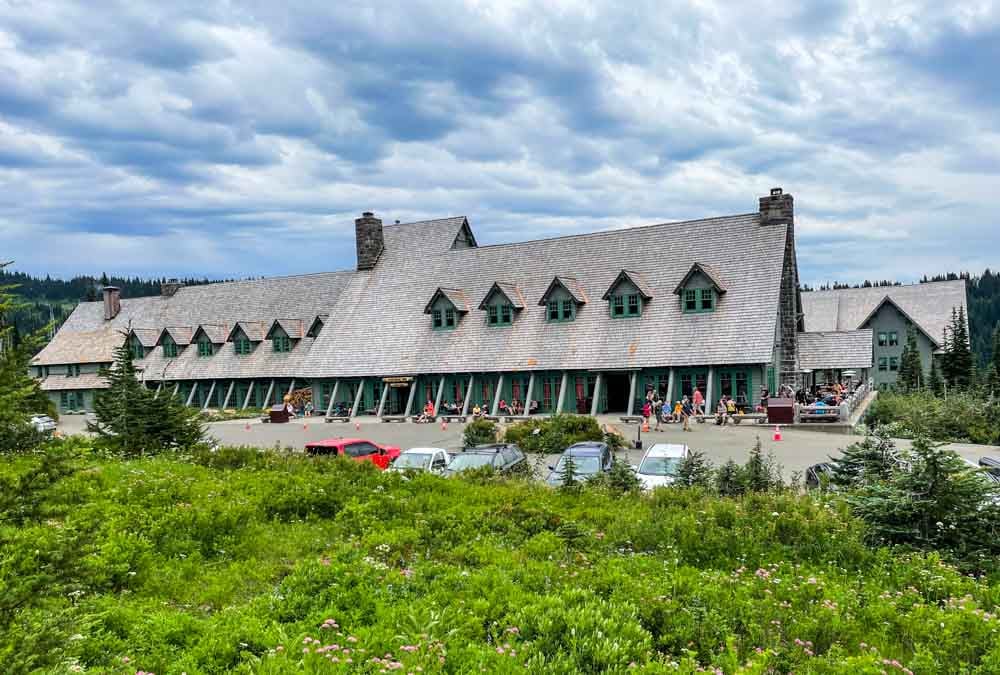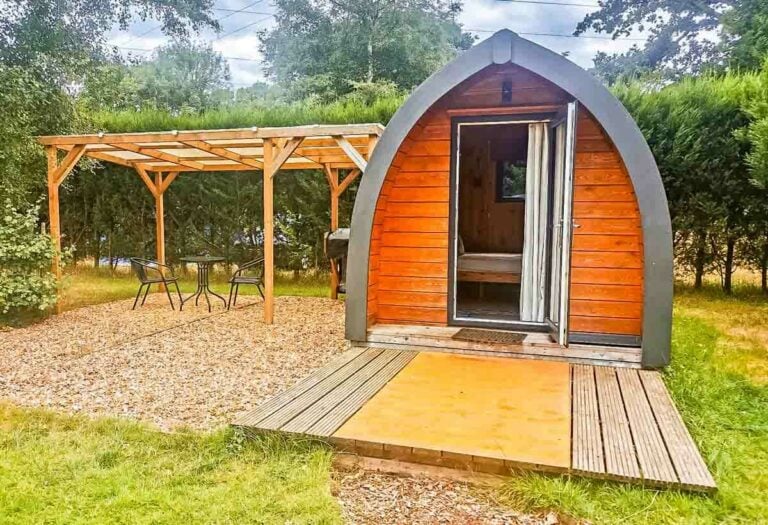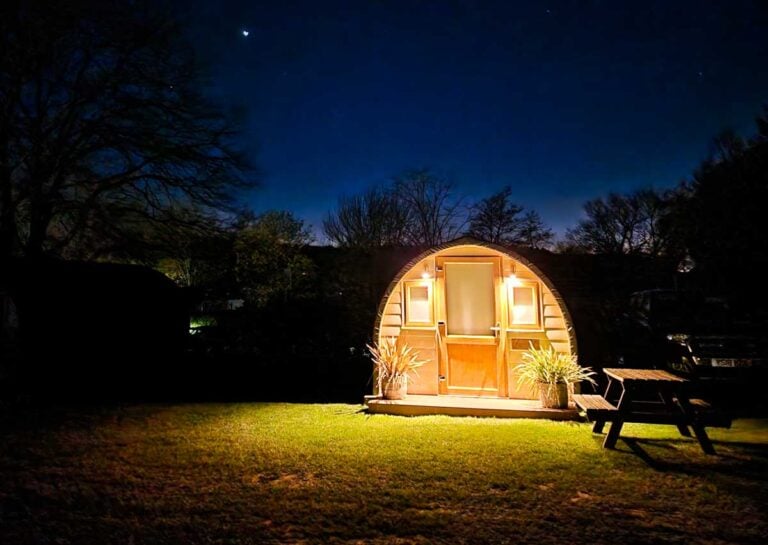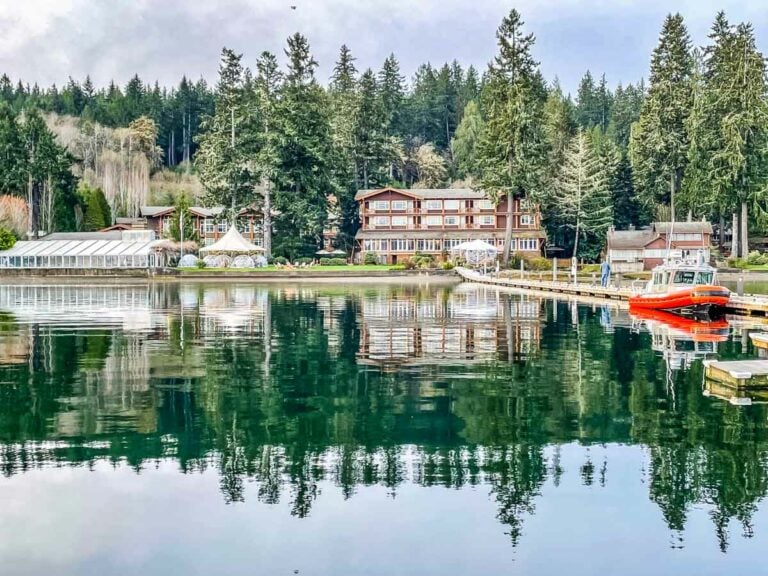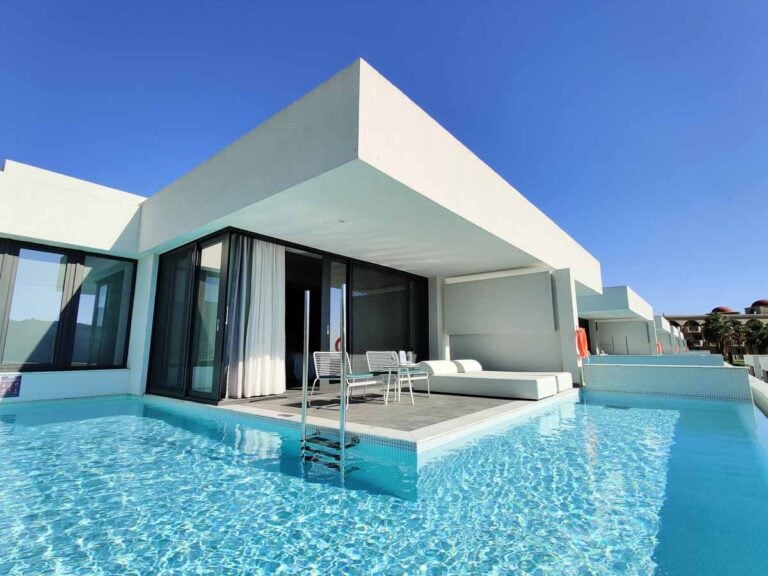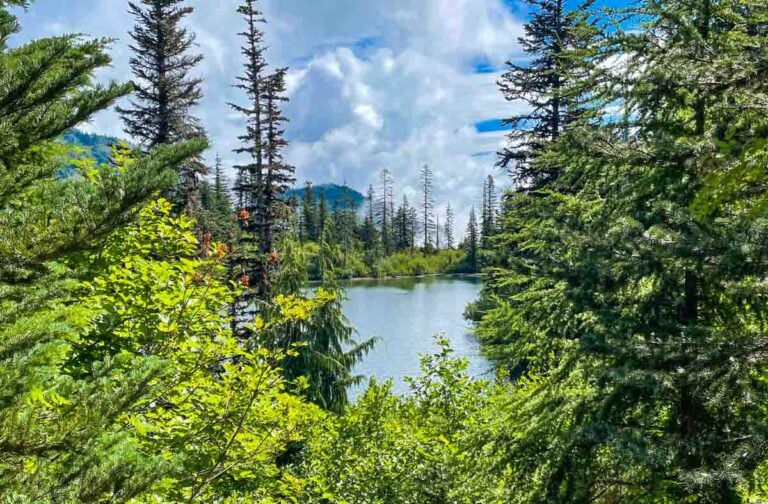The Paradise Inn sits at 5,400 feet elevation on the south slopes of Mount Rainier’s high mountain meadows. Designated one of the “Grand Lodges” of the National Park system, it provides easy access to multiple trailheads, as well as being a convenient jumping off point for exploring the park along the 19 miles of roadway from the southwest Nisqually park entrance.
The Inn is open from mid-May until October. Heavy snowfall (averaging 640 inches / 53 feet according to the National Park Service) prevents winter operations.
My favorite season to stay over is late summer when the flowers are blooming, and the higher trails are open. The Inn is quite popular, so reservations are needed.
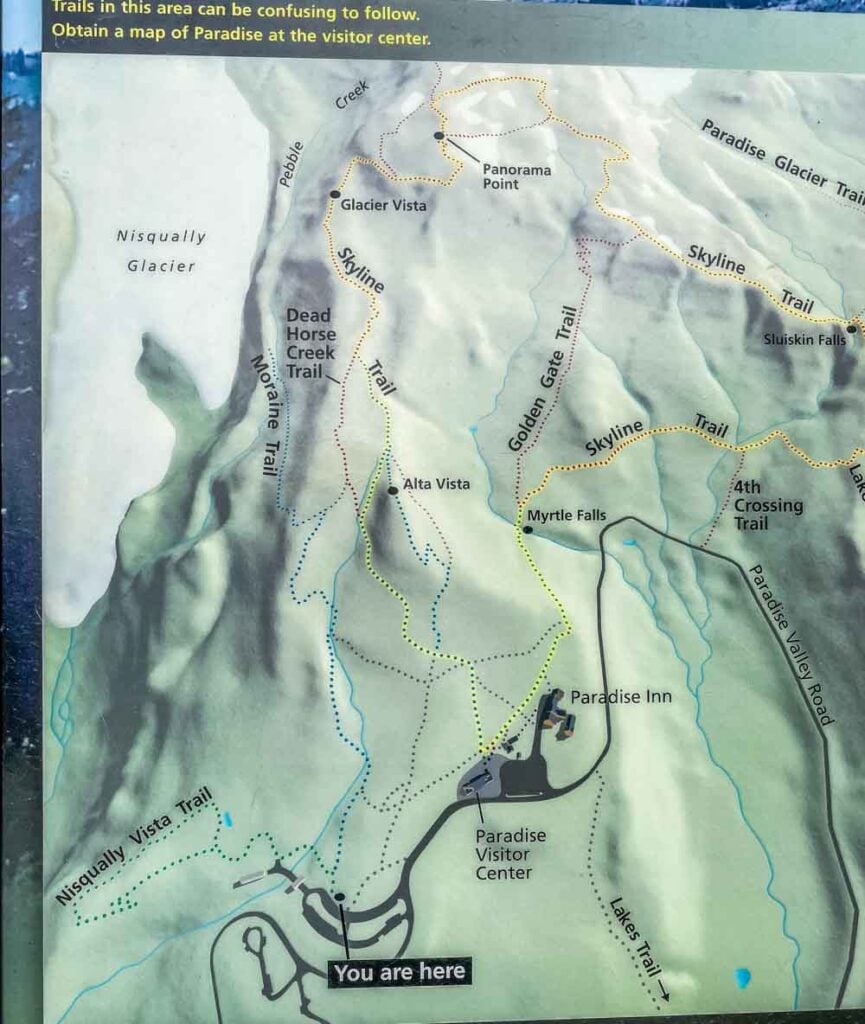
Parking
The Inn is at the end of a spur off the main road from the Nisqually entrance, with limited parking. Arriving early in the day helps, as does being prepared to walk from the lower parking area, up past the Jackson Visitor’s center and to the Inn.
Hotel guests can park in a small parking area next to the Inn, but that does fill up quickly. Once checked in, just out the main doors there are six major trails for short day hikes, including the popular Skyline Trail.
The Skyline Trail is also a main route for climbers summiting the peak. With a good pair of binoculars, I can sit on the front “porch” of the Inn and watch climbers above.
Inside the Paradise Inn
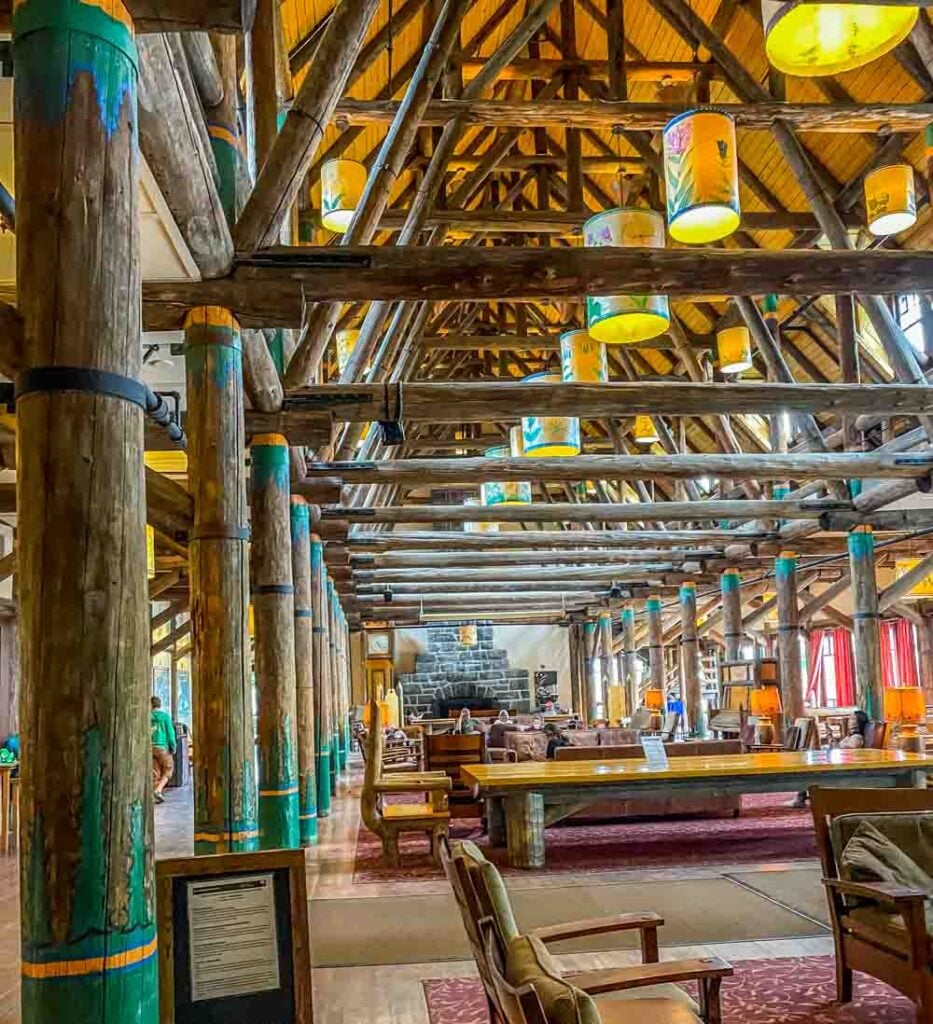
Paradise Inn was designed by Heath, Grove, and Bell. Construction began in the summer of 1916, with the original structure open for guests on July 1, 1917.
Later, ownership was transferred to the National Park Service, and periodic renovations are required to maintain the buildings.
All that snow and winter winds are tough on timber structures, and the park service has ensured the foundations are stable despite the age of the building.
The most distinctive feature is Alaska yellow cedar timbers harvested locally, as well as massive stones used in the two fireplaces on either side of the Great Lobby.
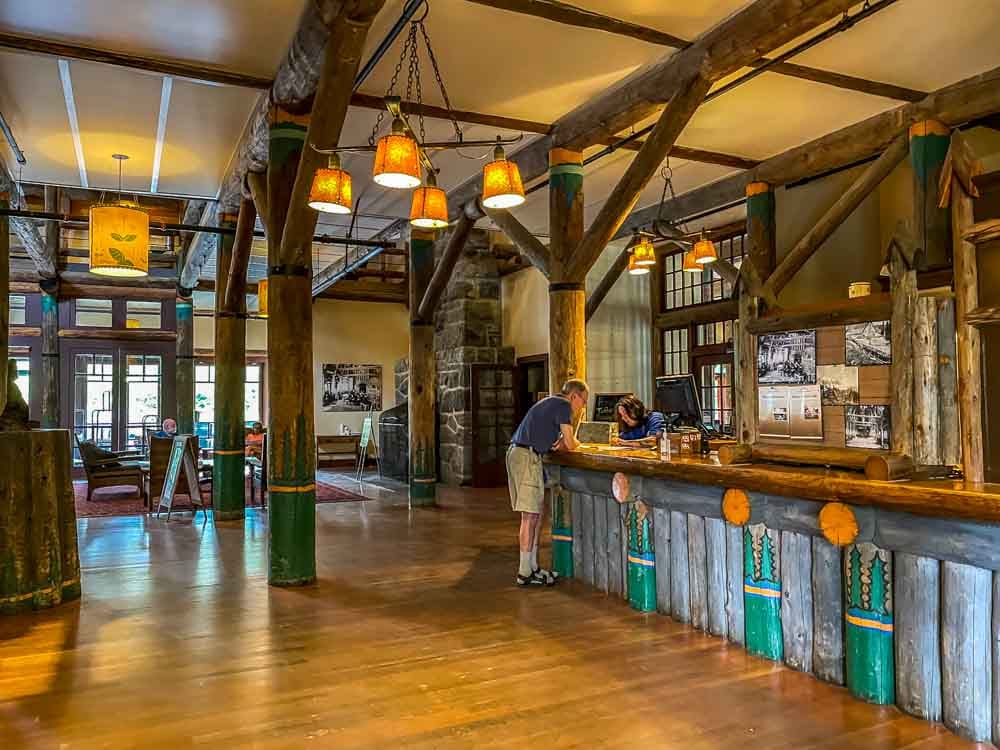
The design elements include massive tables and plentiful chairs in the lobby and that aesthetic is used throughout the public areas. A single split timber runs the entire length of the welcome desk.
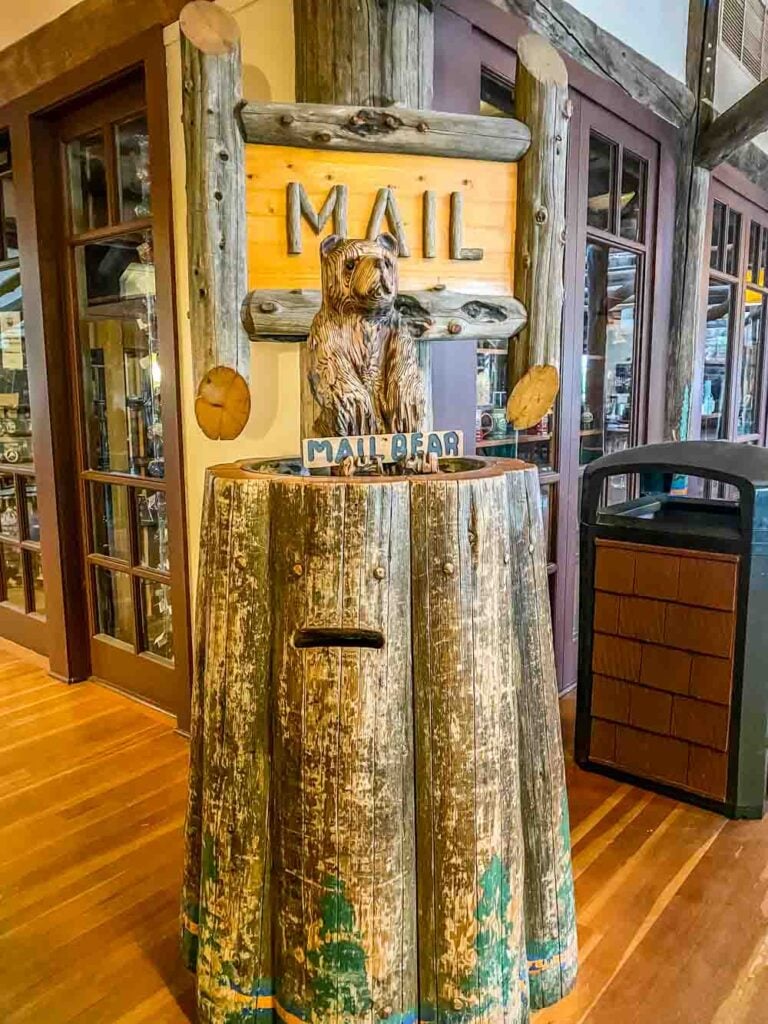
The mail bear, in heavy use since 1917, is another great piece that matches the timbered look and rustic surroundings.
Letters and postcards dropped into the slot are taken down to the Ashford, WA Post Office to start their journeys through the US Mail.
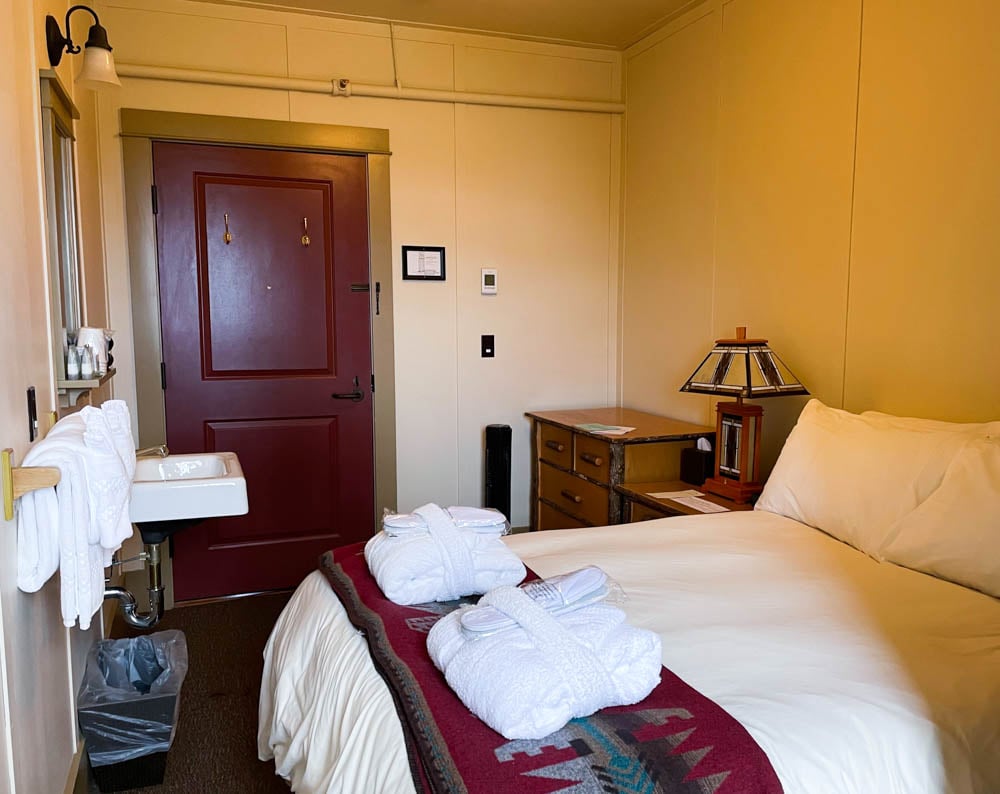
In the 121 rooms, , a few have with private baths, but most offer a sink. Guests share showers / bathrooms down the hall.
There is no phone or television or Internet, so when I stay I can “disconnect” and enjoy the peace.
There are super comfy beds with extra blankets for those cool summer nights. There is no air conditioning. Screens allow guests to throw open the windows at night in order to fall asleep to the sounds of the mountain.
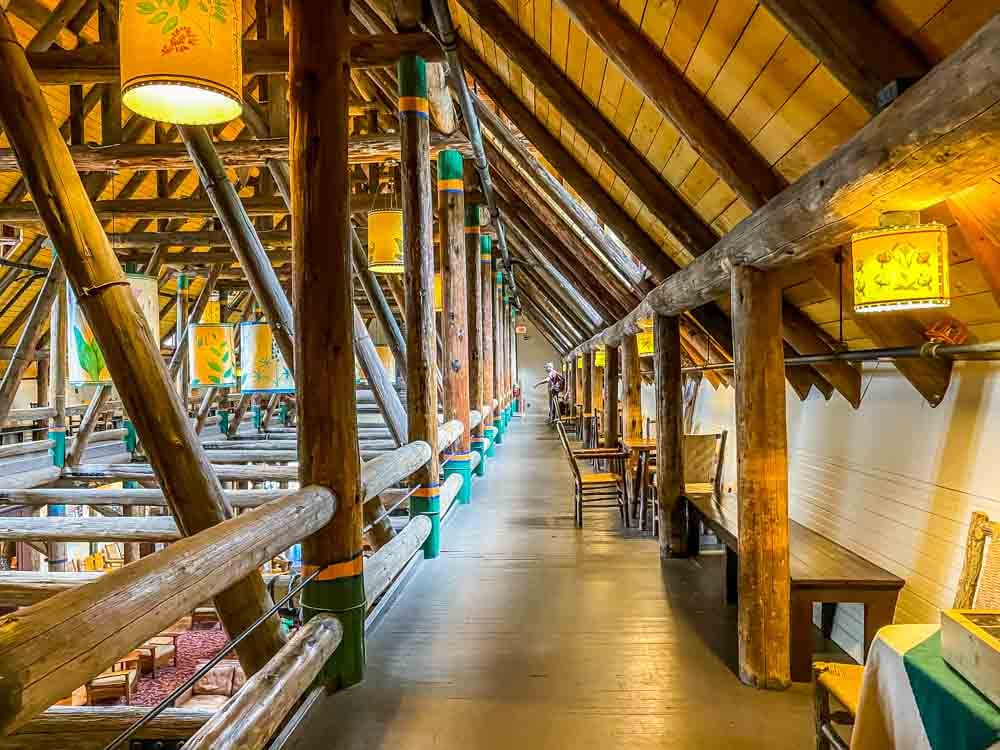
A mezzanine overlooks the Grand Lobby, and there are small tables and chairs for reading, or playing board games, or listening to the music that is generally performed in the lobby in the evening hours.
Young musicians are hired to perform throughout the summer for guests. The mezzanine is also a good spot for a close-up look at the light shades, each a different hand painted image of local flora.
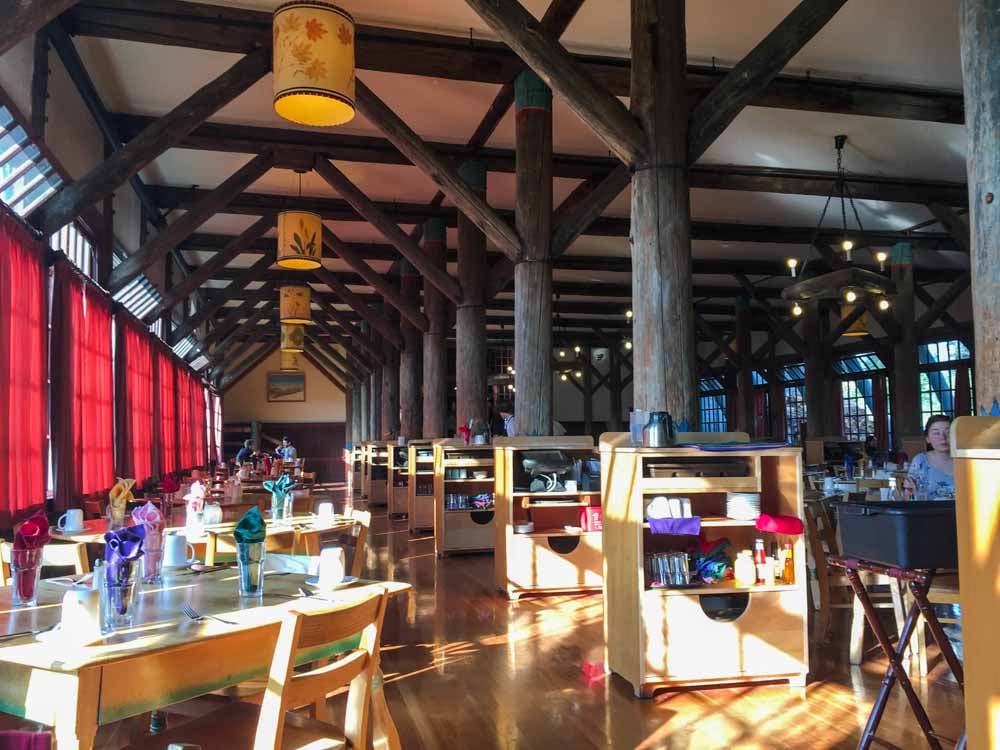
The dining room is open for breakfast, lunch, and dinner. Floor to ceiling windows ensure a gorgeous view while eating.
The remote location does limit the menu somewhat, as all supplies must come up the winding mountain road. Despite that, I have always loved sitting with that view and having a bowl of soup, or oatmeal, or a hearty sandwich.
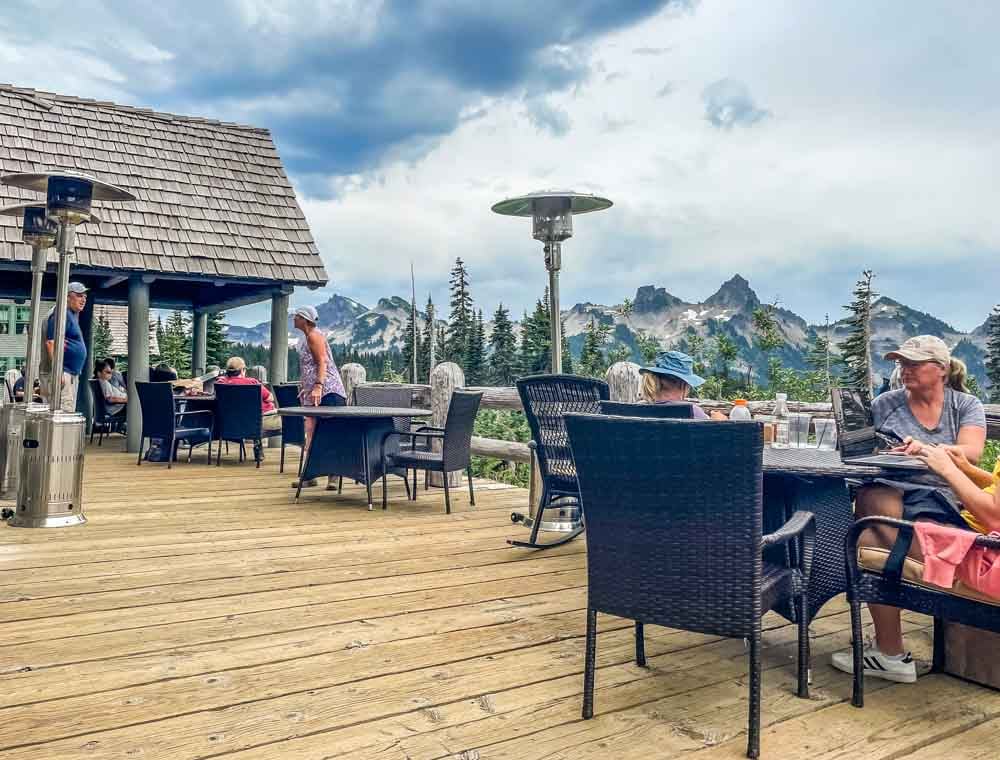
The south porch is another great spot for taking in the view and having a nosh from the small snack shop.
Soft-served ice cream, hot drinks, premade sandwiches, juices, and a small selectin of alcoholic drinks are offered just a few steps from groupings of tables and an unobstructed view.
Nisqually Vista Trail
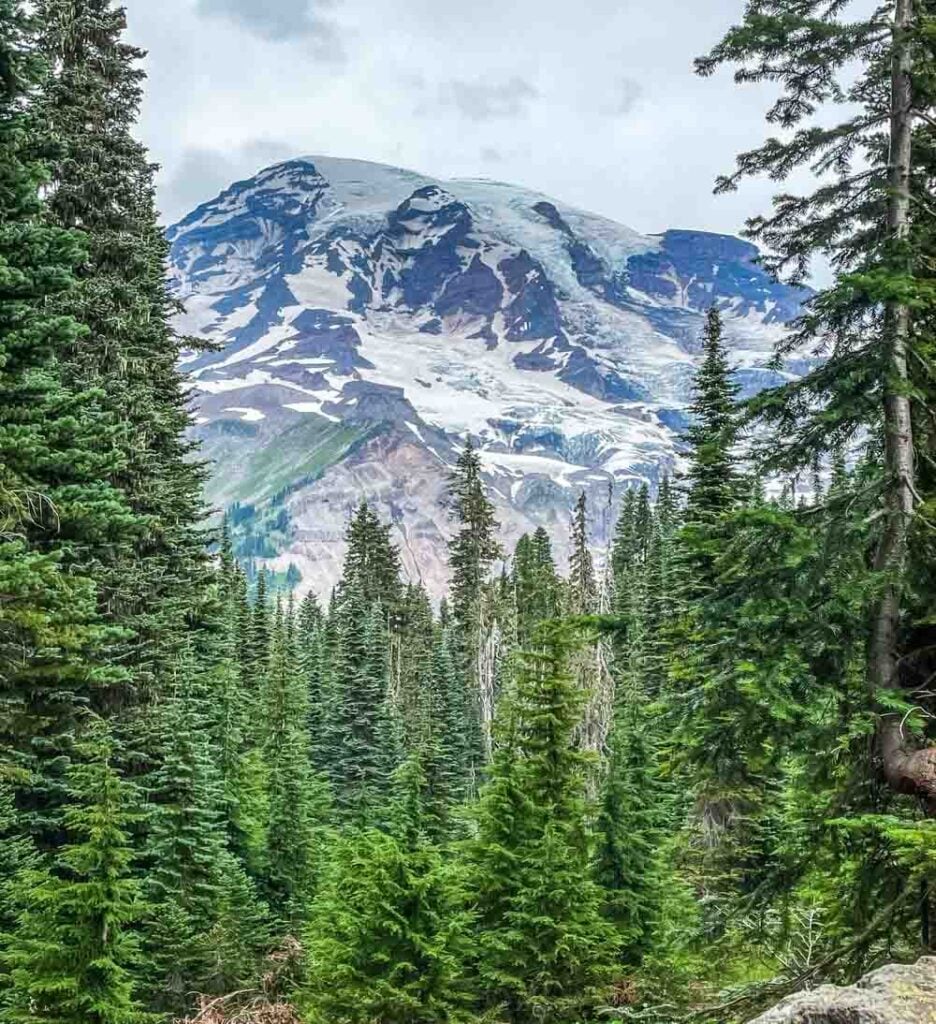
One gentle hike with spectacular views is Nisqually Vista. A loop trail that starts at the bottom of the lower parking area, it is clearly marked, and only 1.2 miles all the way around.
Because there is a relatively mild change in elevation around the entire loop, along with its short length, this is a popular trail for families with small children and others who don’t want a strenuous climb up or down the mountainside.
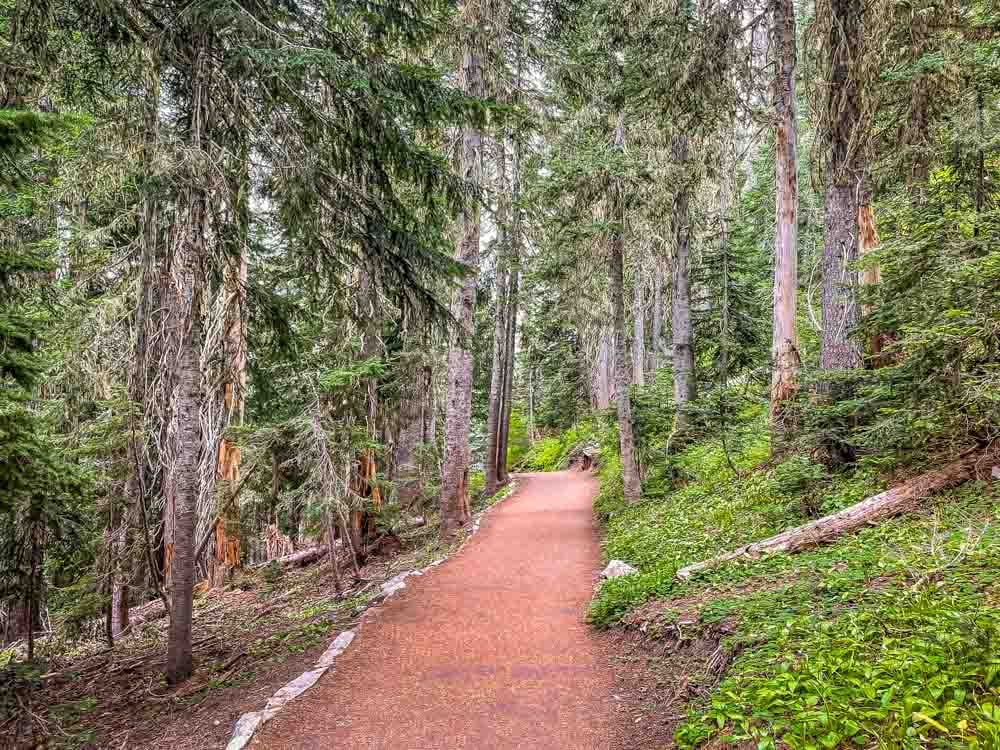
The trail is extremely well maintained, and families with strollers are frequent users.
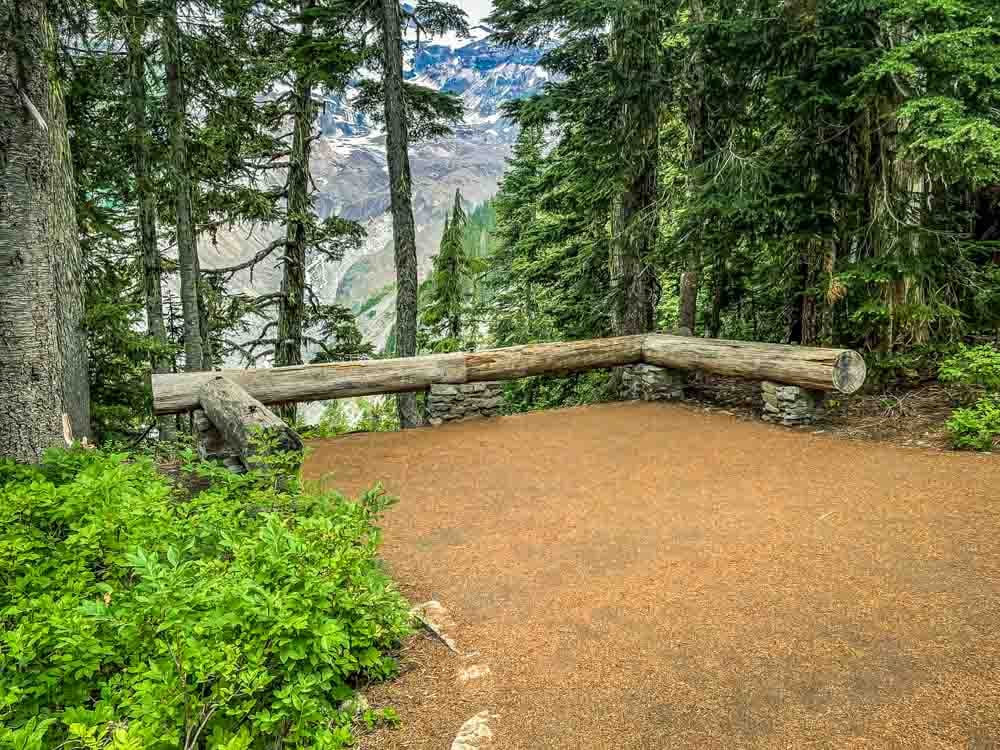
The trail takes visitors through the high forest to a series of outlooks. These are also great places to sit and rest.
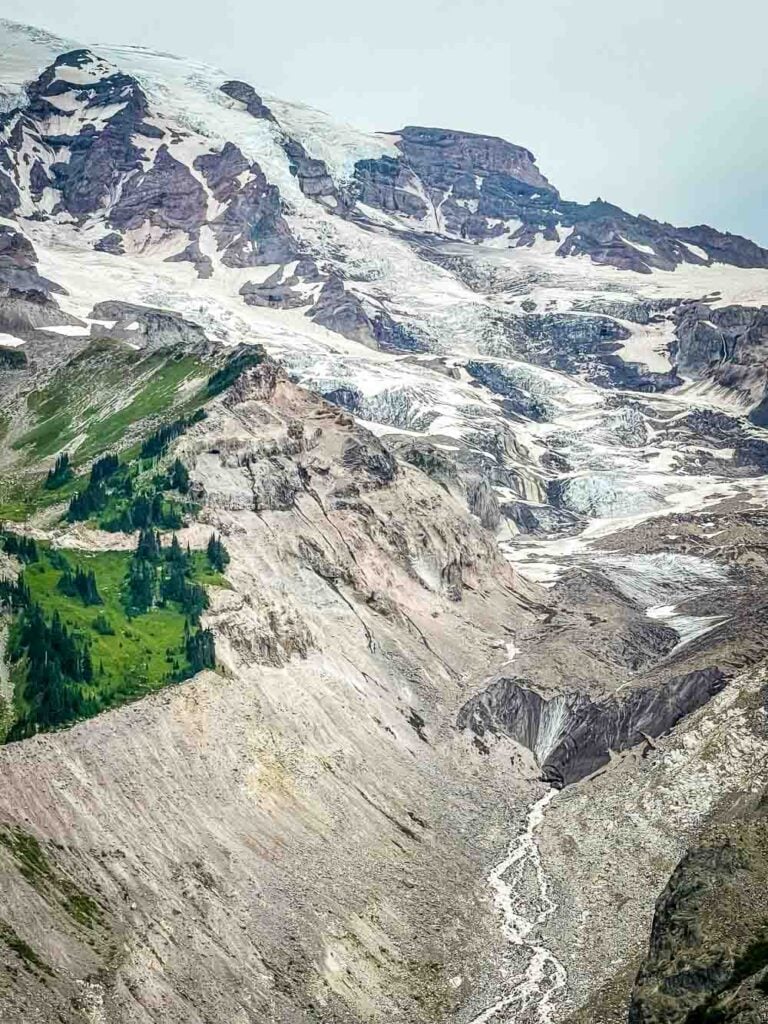
The overlooks have the best views of the entire Nisqually Glacier, from the top of the mountain, to it’s terminus, visible here where the Nisqually river first emerges on its way down to the Puget Sound.
Paradise Meadows
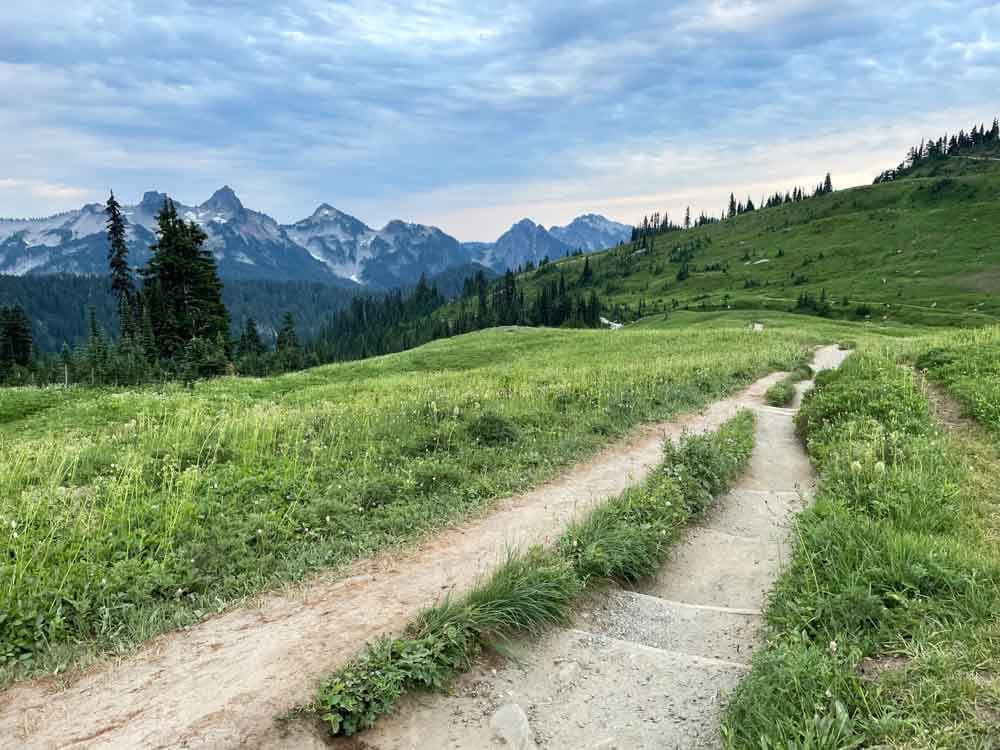
For those who want a little more elevation in their hike, Paradise meadows rise above the Inn.
In later summer these trails can be congested, so I like to stay overnight and start walking early. This strategy has always resulted in some private time in the meadows, even in the height of the tourist season.
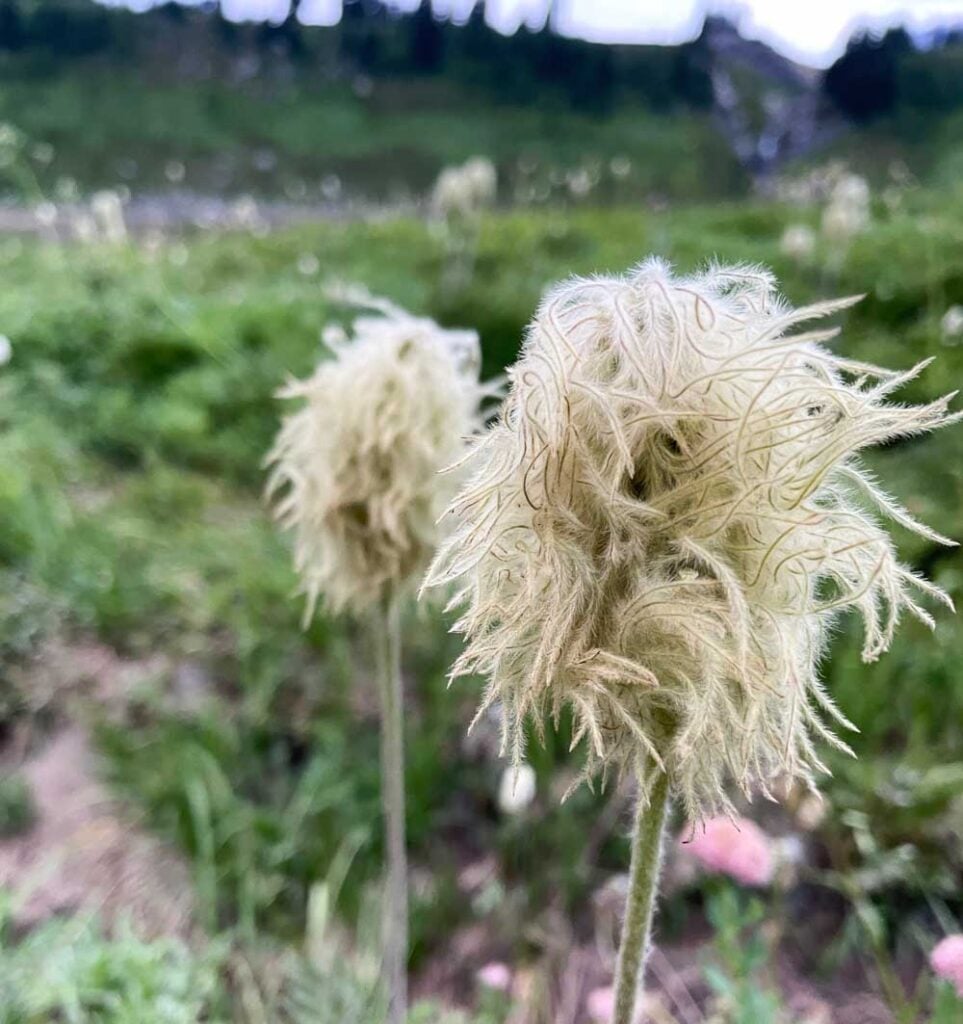
Abundant wildflowers inspired the English name for the meadows. One of my favorites is the Western Pasque flower, which starts the season as a small, white blossom. As the plant matures, it transforms into a fluffy seed-head.
Each seed has a furry tail that allows it to sail on the wind; they look like fluffy mice with long, stiff tails to me. Walking through the meadow I can see these plants in all phases of their life cycle just inches apart from each other.
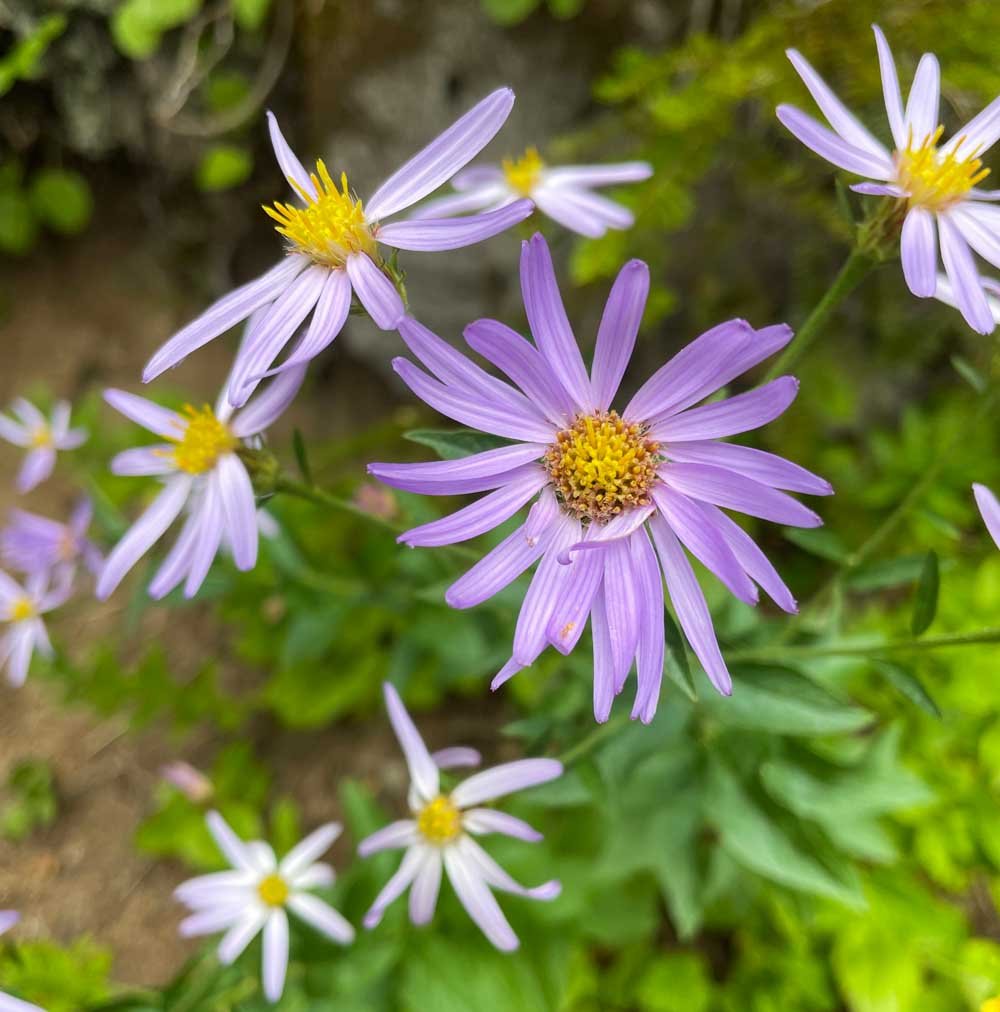
Another favorite is Leafy Aster. Looking a bit like straggly daisies, these flowers have several blooms on each stem.
They flower later in the season; late August and early September they are at their peak. I find their slightly disheveled appearance endearing.
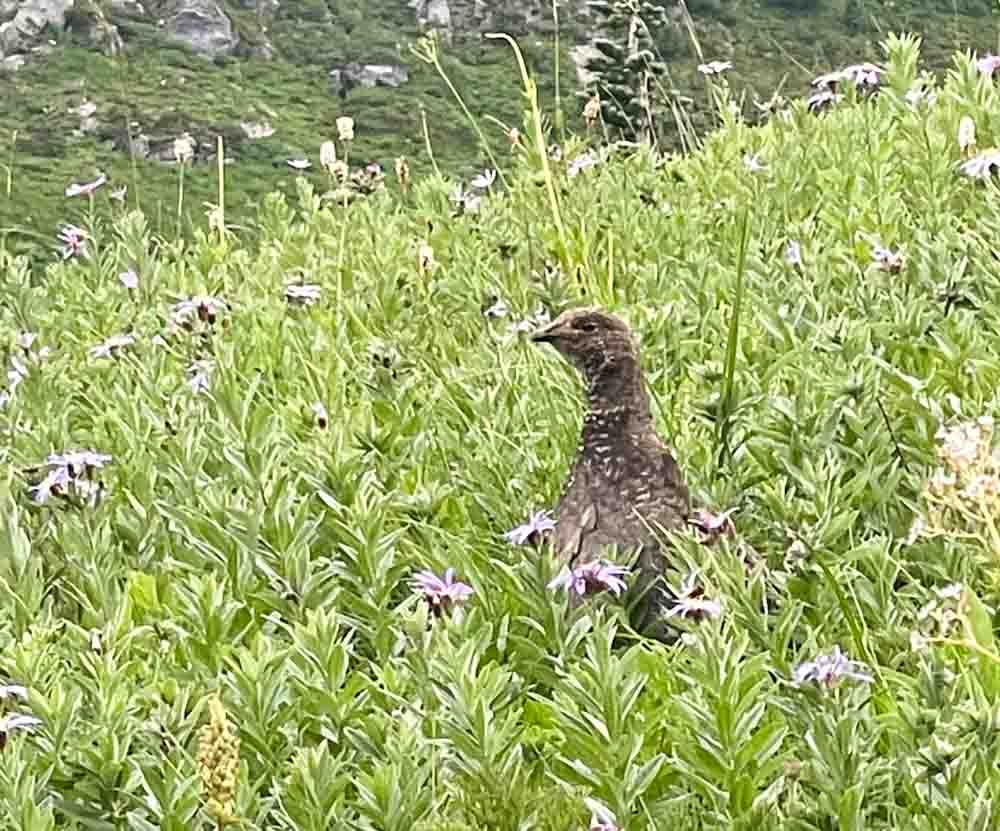
Getting out onto the meadow early gives me a much better chance to see the Mt. Rainier white-tailed ptarmigan.
This sub-species is found only in the Cascades Mountains, with an estimated range from the Frasier Valley of British Columbia south to Mt. Adams in Washington State.
Ptarmigans stay at altitude year-round, switching out their summer brown speckled plumage for white in the winter.
They are extremely difficult to spot, and it helps to have a quiet meadow to sit still in and watch to see if one comes by. This hen was minding three small chicks who were learning to forage in the dense meadow cover.
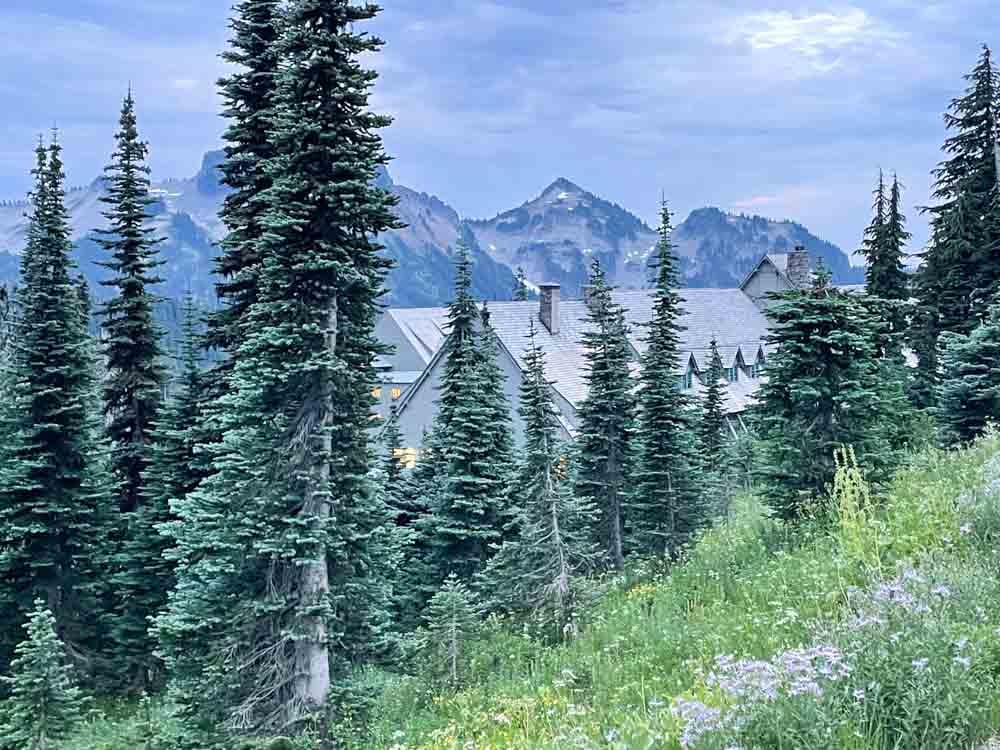
After a day on the meadows, the Paradise Inn has rustic comforts that I return to as often as I can.
You may also be interested in:

